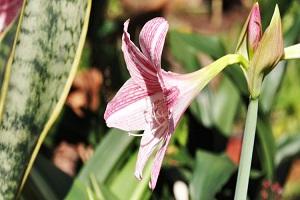Which is Better for Plants: Distilled Water or Tap Water?
Water is essential for plant growth and development, but not all water sources are created equal. Distilled water and tap water are two popular options for watering plants, but which one is better? In this article, we'll explore the differences between distilled water and tap water, and their effects on plant health.
The Benefits of Distilled Water for Plants
Distilled water is produced by boiling water and then collecting the condensed steam. This process removes impurities and minerals from the water, leaving behind pure H2O. There are several benefits to using distilled water for plants:
Low mineral content: Distilled water has a very low mineral content, which can be beneficial for plants that are sensitive to minerals or grow in soil with high mineral concentrations.
Free from contaminants: Distilled water is free from contaminants such as chlorine, fluoride, and heavy metals that may be present in tap water. These contaminants can be harmful to plants in high concentrations.
Predictable pH: Distilled water has a neutral pH of 7.0, which can make it easier to maintain the desired pH level in the soil or hydroponic system.
The Benefits of Tap Water for Plants
Tap water is the most common source of water for watering plants, and for good reason. Here are some of the benefits:
Contains minerals: Tap water contains minerals such as calcium, magnesium, and potassium that are essential for plant growth and development.
Cheap and widely available: Tap water is readily available and is often free or very inexpensive, making it an affordable option for watering plants.
Contains beneficial organisms: Tap water may contain beneficial organisms such as microbes and bacteria that can help promote soil health and plant growth.
The Potential Risks of Using Tap Water for Plants
While tap water has its benefits, there are also potential risks to using it for watering plants:
High mineral content: Some tap water sources may have a high mineral content, which can lead to mineral buildup in the soil or hydroponic system. This can cause damage to plant roots and hinder nutrient uptake.
Contaminants: Tap water may contain contaminants such as chlorine, fluoride, and heavy metals that can be harmful to plants in high concentrations.
Unpredictable pH: The pH of tap water can vary depending on the source and treatment process, which can make it more difficult to maintain the desired pH level in the soil or hydroponic system.
Which is Better for Plants: Distilled Water or Tap Water?
In general, both distilled water and tap water can be used for watering plants, and the choice depends on several factors. If you're growing plants that are sensitive to minerals or are growing in soil with high mineral concentrations, distilled water may be the better option. However, if you're growing plants that require minerals for growth and development, tap water may be the better choice.
It's also important to consider the potential risks of using tap water, such as high mineral content and contaminants. If you're concerned about these issues, you may want to consider using a water filtration system or treating your tap water before using it to water your plants.
Ultimately, the choice between distilled water and tap water comes down to the specific needs of your plants and your growing environment. By understanding the benefits and risks of each option, you can make an informed decision and help your plants thrive.

 how many times do yo...
how many times do yo... how many planted tre...
how many planted tre... how many pine trees ...
how many pine trees ... how many pecan trees...
how many pecan trees... how many plants comp...
how many plants comp... how many plants can ...
how many plants can ... how many plants and ...
how many plants and ... how many pepper plan...
how many pepper plan...






























